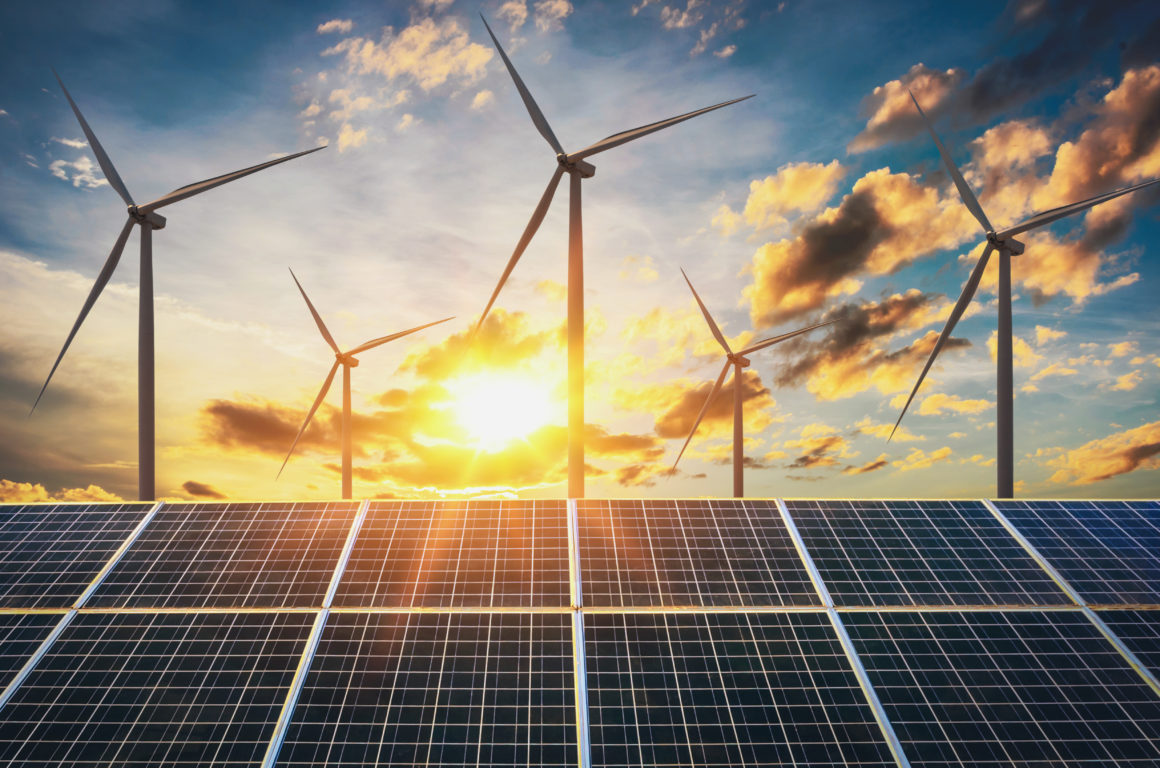Blockchain technology in the energy sector – future of the energy industry?

Blockchain technology is a chain of blocks used to store and transmit data in a distributed manner, creating a decentralized data ledger. Despite the relatively early development stage, blockchain solutions in the energy sector are highly potential.
What is blockchain?
Blockchain is a technology that stores and transmits data about transactions. Data is arranged in the form of consecutive data blocks. One block contains information about a certain number of transactions. After it is saturated, another block of data is created, followed by another and the next, creating a chain. The blockchain contains various types of transactions, e.g., trading, buying, or selling currencies.
This technology is based on a peer-to-peer network without central computers and transaction verification systems. Each computer connected to the network can send and authenticate transactions, while cryptography fully secure blockchain against unauthorized access. The user can view and verify the entire history of transactions from the very beginning of the blockchain’s existence to the present day.
The original concept of blockchain technology was developed and presented in 1991 by Stuart Haber and W. Scott Stornetta. They described a solution that digitally signed documents with timestamps, preventing their modification or forgery. In 2008, a white paper was published, which presented the general principles of a decentralized peer-to-peer network called Bitcoin. Satoshi Nakamoto (a person or a group of people hiding under this pseudonym) is considered to be the creator of blockchain, although this technology’s theory arose much earlier.
Blockchain and renewable energy
In most countries, the energy system is centralized. However, lately, more and more consumers are also energy producers, becoming prosumers, e.g., by generating energy from solar panels.
Blockchain technology concludes energy sales transactions directly, within seconds, which in other cases requires a central intermediary. Direct sales that does not require additional partners reduces the cost of purchasing energy. End-users benefit from cost reduction. Moreover, all transactions between the various parties are carried out directly over the peer-to-peer network, without any middlemen and regulators. Therefore, blockchain technology makes it possible to establish a decentralized energy supply system, much cheaper and more efficient than the traditional one. Shortly blockchain will directly connect suppliers to energy consumers and simplify today’s energy system where each party in the energy sector operates at different levels.
Systems developed with blockchain can facilitate investments in PV panels installed in buildings. Residents (co-owners of these installations) would be able to profit by selling energy surplus. The software optimizing transactions will decide whether it is more profitable to consume the energy produced, charge an electric car, or sell energy to the grid.
Blockchain in the energy industry: smart contracts
The technology of distributed ledgers uses smart contracts, which offer new opportunities to create various automated tools for the energy sector. That includes individual customer service platforms and the entire energy system structure, including payments, signing contracts, blockchain-based energy exchanges, enabling registration of transactions, and saving their history on the blockchain.
The energy industry can use blockchain and smart contracts for:
- excluding intermediaries in decentralized business models,
- making payments,
- verifying transactions,
- increasing security of decentralized data storage.
In an energy system based on blockchain technology and smart contracts, consumers would manage contract data. They themselves would define the conditions of electricity consumption. Therefore, blockchain enables producers’ direct connection with consumers and thus decentralizes the energy trading system.
Smart contracts used in blockchain can provide automatic control over energy storage installations and energy transmission within the network. Smart contracts would help to keep a balance between energy supply and demand. If more energy was produced than needed, it would be possible to channel this surplus into energy storage systems automatically. On the other hand, stockpiles’ power can be available when the energy supply is too low and does not keep up with the energy demand.
Distributed accounting is another benefit of blockchain, as it improves network functioning and energy storage. Blockchain enables decentralized storage of all transaction data. Distributed accounting would allow keeping distributed, secure, and tamper-proof register of all energy flows and transactions.
Use case of blockchain in energy market
One of the most interesting examples of using blockchain in the energy industry is SolGen. The Solar Generation Company was founded in 2016 in California, USA, as a combination of innovative business concepts and an ambitious-technological proposition. SolGen’s goal is to collect solar energy and distribute it affordably in places that have limited solar potential. The overall operation encompasses solar hardware installations combined with an IoT and blockchain-based trading platform.
Codibly created a complete IoT and blockchain-based platform capable of processing raw telemetric data and delivering it to homeowners in a form of insightful dashboards with a smart transaction system, based on distributed ledger connected with the platform. The SolGen Platform is a complex decentralized application based on the Internet of Things and dedicated for solar energy real-time management on a global scale. Platform enables efficient energy transfer via smart contracts between US-based prosumers (energy producers) and EU-based subscribers (energy consumers), including homeowners.
Click here to learn more about our cooperation with SolGen.
contact us
Need expert guidance on your next energy project?
Reach out to us and discover how Codibly can offer tailored solutions to drive your business.